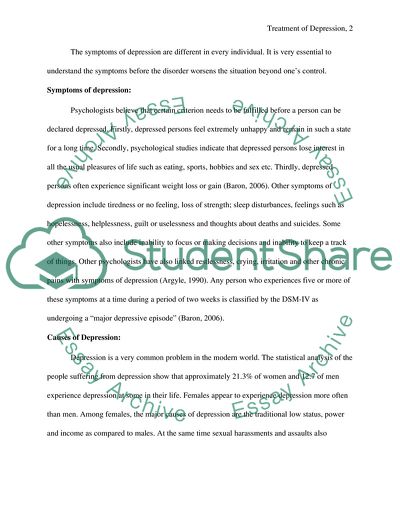Cite this document
(Treating Depression Essay Example | Topics and Well Written Essays - 2500 words, n.d.)
Treating Depression Essay Example | Topics and Well Written Essays - 2500 words. https://studentshare.org/psychology/1705298-treatment-of-depression
Treating Depression Essay Example | Topics and Well Written Essays - 2500 words. https://studentshare.org/psychology/1705298-treatment-of-depression
(Treating Depression Essay Example | Topics and Well Written Essays - 2500 Words)
Treating Depression Essay Example | Topics and Well Written Essays - 2500 Words. https://studentshare.org/psychology/1705298-treatment-of-depression.
Treating Depression Essay Example | Topics and Well Written Essays - 2500 Words. https://studentshare.org/psychology/1705298-treatment-of-depression.
“Treating Depression Essay Example | Topics and Well Written Essays - 2500 Words”. https://studentshare.org/psychology/1705298-treatment-of-depression.


